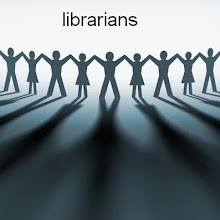Eradicating our Roots

Before I landed a position in reference and then my current professional post, I was a circulation manager. I was told time and time again that my staff and I were unnecessary because there are automated checkout systems and patrons don't really care to deal with a human. Most of the patrons at our service desk weren't checking out books. They had questions no machine could answer.... Librarians are responsible for some of these trends, particularly those who are “too important” to work a desk and hide in their cubicles chasing tenure while uninformed graduate students and undergraduate clerks staff the reference desk. At my current institution, even our dean works the reference desk (as does every librarian, no matter their specialty)....
Fewer and fewer “librarians” are taking any but the basic reference course in “library” school. Programming and technology classes are pushed.... This leaves us with few reference librarians who can master both the electronic and what some might call the archaic—like the skills to know and use print indexes. In the academic library...we may think that the dispersal of service desks, staff, and professionals working in public areas goes unnoticed. It does not. It is noticed by students and faculty, particularly those who were accustomed to knowledgeable professionals and good service. As libraries change to a more businesslike model, with more automation and more outsourcing, student achievement at our universities is declining. That is a very disturbing trend of which we should be wary....
What concerns me is the laissez-faire attitude often taken when making field-altering decisions and the disappointed faces of patrons when they don't like what we're doing. It is fine to evolve and adapt, but to do so by eradicating our very roots and the reasons our profession exists is shortsighted at best.
—Colleen Harris, Asst. Prof., Reference & Instruction Libn., Univ. of Tennessee, Chattanooga
-- Library Journal, 3/15/2008


